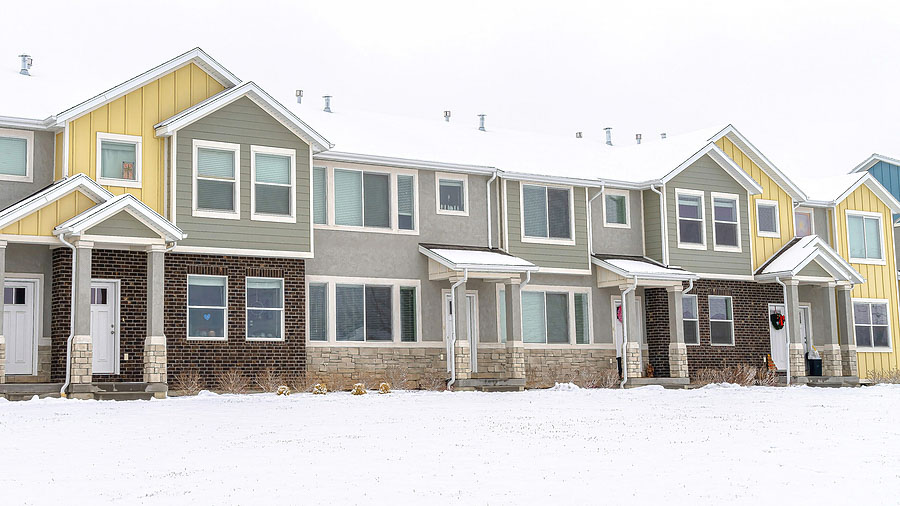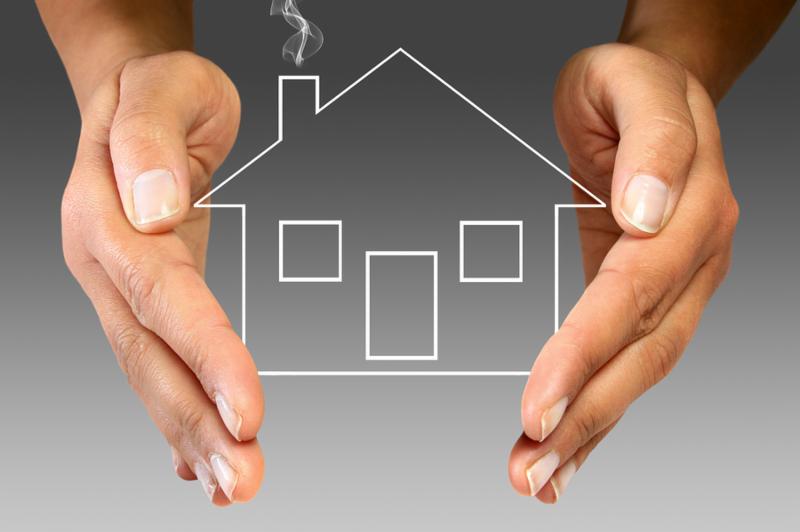Conflict Resolution & When to Involve the Board

When living in a condo or townhome where you’re sharing walls with neighbors, conflicts can arise. This isn’t uncommon, and not every problem needs to be taken up with the HOA board or community manager. Here are some ways you can handle conflict resolution: Talk to your neighbor If you don’t bring the issue up to your neighbor, they might never know that they’re doing something that bothers you. Noise levels are a common complaint, so just let them know that they need to reduce the volume. Be respectful and don’t let the problem fester, or the discussion could become heated when it doesn’t need to be. When you start the conversation with an accusation, the other person feels like they’re being attacked, which can lead to further conflict. Bring in a mediator A non-biased third party can be a helpful way to find a middle ground and come to a solution. They’re able to hear out both peoples’ sides and bring an outsider’s perspective to the problem, which is sometimes all you need to resolve the issue. Check the HOA bylaws Another thing you can do before going to the board with your complaint is to check if there’s anything in the bylaws about it. Noise complaints are valid, along with an issue like someone not picking up after their dog or leaving a mess in common areas. If they’re violating a bylaw and they don’t stop after you’ve talked to them, you can bring it to the board or community manager’s attention. Of course, if you witness any destruction of HOA property, let your board know rather than confronting the individual. But for personal matters and disagreements, try to work it out amongst yourselves before involving management.
Winter Prep: Snow Removal Contractors

Minnesota winters can be pretty unpredictable, but your snow removal rules shouldn’t be. Don’t wait until the first snowfall to have your snow removal contracts set in place—the specifics need to be created ahead of time so that you aren’t flooded with questions and concerns about policies. If you don’t have a snow removal contract in place yet, now is the time to do so. But, what does the contract include? The services performed. Your contract should include what services the contractor will be doing for the community, as well as what the homeowners themselves should be doing. The snow removal company will be responsible for cleaning roads, pathways, and parking lots, but it’s up to the board to decide if residents should shovel their own sidewalks and driveways. Timing. When will the company come to remove snow? Many companies require at least two inches of snow in order to come remove it, but discuss this with your contractor, as they may have different requirements. Cost. Some companies charge a fixed amount for each time they come to remove snow, while others charge per hour. It’s difficult to predict what our upcoming winter will be like, but if it’s anything like the past few winters, a fixed price may be the better way to go. Liability information. If the contractor falls on ice and hurts themselves, you need to know who is legally responsible. The company themselves should have proper insurance for instances like these. Pre-treatment services. We recommend that you choose a company that offers pre-treatment services, like salting the roads before an upcoming storm. This is typically done a day or two before the storm hits and can reduce the chances of accidents. Contact information. When the weather is unpredictable, you need to be able to reach the company 24/7. In addition to their regular office number, make sure you have a number for emergency services. We certainly hope for a mild winter, but if we’re in for a rough season, make sure to hire a snow removal company that you can count on
Summer Vacation: Tips for Being Away from Home

We’ve all been there— you’re finally on the road and hours into your trip when you think, did I lock the front door? Burglaries are common while families are on vacation, so we’ve put together a list to ensure that your home and belongings are protected. Lock doors and windows. Have someone else double-check in case you missed any. Put your mail on hold, or have a neighbor check your mail and take any packages. Leave a light on. At night, if there’s some sort of light in the house, burglars will typically assume that someone is home. Leave a car in the driveway or in your parking spot. If you can’t, ask a neighbor to do so. Burglars will be deterred from breaking in if they think someone’s in the house. Have a security system in place. Make security camera obvious to potential intruders. Consider having someone housesit, or at least check in every day. Don’t publicly announce that you’ll be away on vacation. With social media, we all love to post photos while on our trip, but wait to upload those pictures until you’re back home. Keep curtains and blinds in their normal positions. If you always have them half-open, for example, having them closed for a week gives off the impression that you’re away. If you make it look like someone is home, burglars likely won’t spend any time trying to see if it’s true. Entrust a neighbor with keeping tabs on your home. When you’re on a trip, you deserve to relax. By utilizing this checklist, you won’t have to worry about what’s going on at home!
Getting Things Done – Our Growing Vendor Directory

he Sharper Management list of preferred vendors continues to grow! If you are in the market to check a few of your maintenance items off the To Do List this Spring, the Directory is a great resource. Check it out using the button link below. [button link=”https://sharpermanagement.com/preferred-vendors/” color=”black”] Vendor Directory[/button]
Winter Outdoor Fun

Did you know, studies have shown that going outside and being active for even 20 minutes per day helps increase endorphins and reduce blood pressure. While there aren’t as many activities this year due to COVID-19, there is still plenty to do in Minnesota – even in January! We’ve compiled a quick list to help you get out and get moving. Snowshoeing. Head over to Lebanon Hills over in Eagan and, for only $7/hour, you can explore the trails above the snow using snowshoes! This is great for those that like to hike and go on walks but don’t like getting their socks wet from snow. Ice sports. The Minneapolis Parks Department is still hosting skating, hockey, pond hockey, and broomball on their ice rinks. While the numbers of lakes this year are reduced and there is a limit on how many people can be in a warming room at once, you can still lace up your skates and get your blood pumping. Hiking to frozen waterfalls. While Minnehaha Falls is pretty in the summer, it is are absolutely stunning in the winter. Hiking to the frozen falls and then following the trails by the water is a great weekend activity.
Long-term Ideas for Productivity When Working from Home

According to Stanford University, 42% of the American workforce is currently working from home. If this applies to you, we have few ideas that may help. Have a designated workspace. While the kitchen counter may seem like a welcoming home office, it is recommended to carve out a space that is specifically for work. Having a specific workspace will help maintain the mental separation of work and home, and will also make it easier to stay organized. Set ground rules with loved ones. It’s easy for your family to think you’re “home” when really at “work”. Setting a few ground rules like, “If my door is shut, don’t disturb me” can help keep you stay focused. Maintain your regular work hours. Dedicated work hours are a great way to keep family time and work time separate. Resist the urge to pop into your home office to do a “couple of quick things”. Often times those quick things turn into a few hours instead.
Maintaining Community Ties During COVID-19

With everyone spending time more time at home and distanced from others, has your HOA been affected? As we navigate our way through COVID-19, it’s important to foster connectivity in your association. Holding events over Zoom is a great way to connect with people and do different activities. For example, you can play bingo, have virtual club meetings, and have HOA meetings. Zoom is a free software that anyone can use; all you need is the email address of those wanting to attend. Companies have been coming out with online extensions so people can play games at home, too. Netflix has a Chrome extension that allows multiple devices to watch the same show at the same time, so you can have an at-home movie theater night and show movies to residents via Chrome. Another way to have a movie night is to have families reserve spots, then set up an outdoor projector and mark off seating areas 6 feet apart. Households can sit together, bring their own snacks, and enjoy time outdoors while staying safe. If your homeowners love the game “categories”, use the free website scategoriesonline.net. Simply go to the link, hit “play game”, choose the categories you want, and then select the option to send players a link for a private game. This way people will be able to have fun, interact, and stay safe.
Pets, Winter and HOA Living

We still have a couple more months of winter to go, which means a lot of us will choose to stay inside where it’s warm and cozy. For those who have kids or pets, this also means a little extra work so that cabin fever doesn’t set in and cause disturbances. Similarly, if a resident has decided that this is the year to adopt or buy a pet, they should be sure to follow their HOA’s rules before taking that big step. Once a member has taken on the responsibility of a pet, they also take on the responsibility of following the HOA’s pet policy. In most documents, the pet owners will be required to clean up after their pet to keep the association grounds well-maintained for everyone. For dogs especially who go outside a lot, excrement should be picked up and toys should not be left around in public areas. Keep all pets on a leash so they can be contained-even if the pet is well-trained, a noise could startle them and send them running. Overall, be respectful of your neighbors. If your dog needs to burn off energy in the winter, try taking them to a doggy daycare. A pet who is constantly making noise can be a disturbance to the community. If you do go for a walk at dawn or dusk, wear some kind of reflective gear to keep you and your pet safe. Doing all this will help keep the order in your community so everyone can live comfortably.
Conflict Resolution

It’s not uncommon for differences to arise between neighbors and townhome and condo living is no different. If you find yourself in a situation where you feel you must speak up about a neighbor’s behavior or treatment of property, there are several ways to start the process and even resolve it without involving your Community Manager. Some of the steps we recommend you start with include: 1. Talk to your neighbor. Sometimes people aren’t aware that they’re doing something to bother you. Starting a face-to-face conversation to express your concerns can many times clear it up before it goes any further. Your approach to the situation can “make or break” the outcome. Some tips we suggest include: Assume the other person is unaware of the problem. Use problem-solving phrases, such as “How do you suggest we approach this?” or “I think I have a solution.” Don’t let the issue fester. If you bring your concern to the table, try to come to a resolution before your leave. Situations tend to get worse when one or both parties overthink it. If possible, avoid discussing your issue with other HOA members. Getting too many people involved can make it harder to solve in the long run. 2. Check your HOA’s Bylaws Be sure you know the bylaws of your HOA to ensure you have a valid complaint. This information can give you ground to take your issue further or put into perspective the validity of your complaint. 3. Mediation Not all disputes between neighbors should involve your HOA board. Third-part mediators can provide a non-biased and safe table to for you and your neighbor to discuss the problems and find peaceful resolution. 4. Suspecting criminal activity. It is important to note, if your suspect criminal activity is occurring in your neighborhood, it should be reported to the local authorities. When involving the police, your written log of complaints and observations will be useful for the authorities. 5. Destruction of HOA common areas or property. If you witness a neighbor intentionally destroying HOA common property, bring it to the attention of your community manager or HOA board. We hope you find this information helped. Our HOA communities are wonderful places to live and we strive to keep them that way!
Summer Vacation

August is vacation month in Minnesota. Our best weather of the season is upon us, the kids are still out of school, and the time is just right to get away for some R&R. Unfortunately, your perfect vacation could be ruined upon your arrival back home when you find your home has been broken into while you were away. As your thoughts are racing through this scene, you wonder what you could have done to prevent this? While there is no foolproof way to ensure your home will not be burglarized while you’re away, there are smart precautions to take that could help to minimize your home becoming a target for thieves. Just like a well-planned list of activities for a nice vacation can help make things go smoothly, so can a well-planned vacation security checklist. Some simple suggestions include: Stop the mail. An overflowing mailbox or newspapers on the doorstep are great indicators that no one is home. Leave your blinds open. One of the first thing a thief is likely to do is close the blinds while they are inside your home. If you arrive back and the blinds are closed, it’s a great early tip that something is amiss. Be aware of what you are posting on social media. Post your vacation photos after your return and don’t announce to the world that you’re at the airport awaiting take off. If you must post such things, check your security settings and be sure only those you’ve invited to your networks can see what you’re writing. Set them to private and not public. Lock up. This seems so simple, but it’s easy to forget the flip the front door lock especially if you don’t use that entrance very often. Also check windows and side doors to your garage. Be sure they are all secure before leaving. Do not leave a spare key on the porch under the potted plants. Burglars know the tricks and will likely find your extra, hidden key! Mind your trash. Leaving your cans out when no other neighbors do is another tipoff that you’re not home. We hope you enjoy your vacation time!
